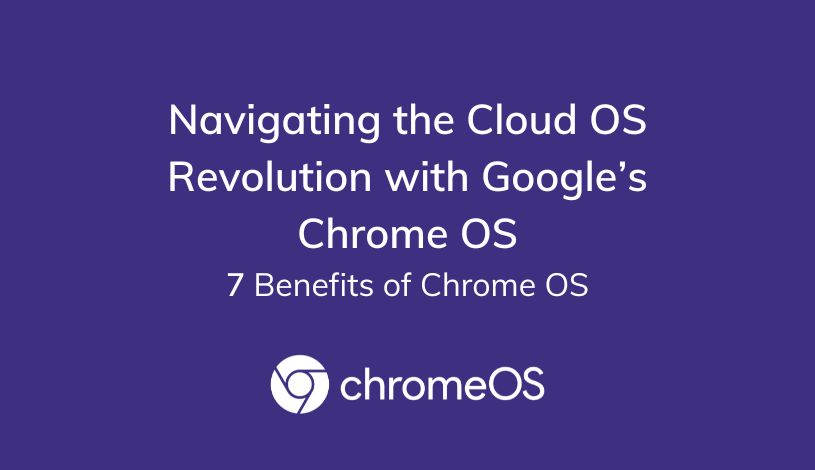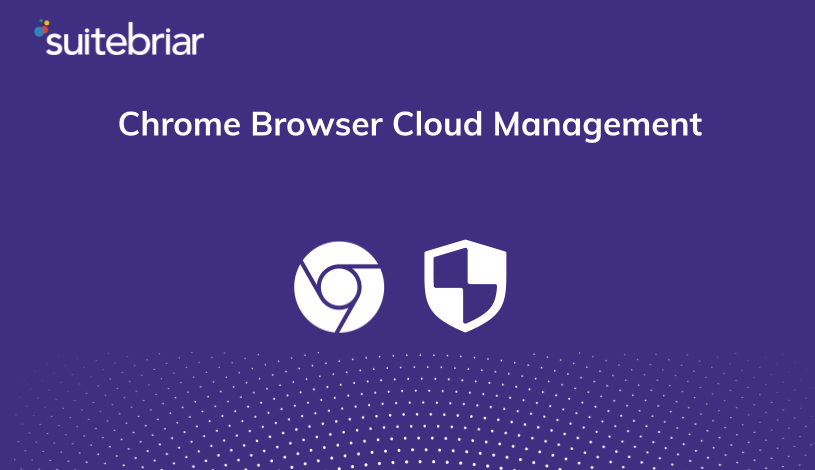Beyond Disruption: Safeguarding Enterprise Operations with ChromeOS
The recent outage caused by Crowdstrike's Falcon agent impacting Windows computers and servers worldwide served as a stark reminder of the vulnerabilities inherent in traditional endpoint security solutions. This incident, while thankfully resolved relatively quickly, highlighted the crucial need for organizations to reconsider their security strategies and potentially embrace a more streamlined, agent-less approach like ChromeOS.
In a world increasingly reliant on technology, security should be a seamless experience, not a constant source of stress. Enter ChromeOS, a platform that eliminates the need for third-party agents and offers a fresh perspective on security and user experience.
The Case Against Third-Party Agents
While endpoint security solutions offer valuable protection against malware and cyberattacks, their reliance on agents presents several drawbacks:
- Single Point of Failure: When a third-party agent malfunctions or experiences an outage, it can paralyze your entire system. This is precisely what happened with the CrowdStrike incident, leaving countless users frustrated and their work stalled.
- Vulnerability Risk: Third-party agents introduce an additional attack surface. They are essentially mini-operating systems running alongside your main system, potentially creating vulnerabilities that malicious actors can exploit.
- Complexity and Overhead: Third-party agents often require complex installation, configuration, and maintenance, adding an extra layer of overhead for IT teams, especially for large organizations.
- Potential for Hijacking: The incident underscored the potential for malicious actors to exploit vulnerabilities within these agents, turning them into points of entry for attacks.
- Performance Impact: These agents can consume valuable system resources, leading to slower performance and reduced battery life. This is especially problematic for resource-constrained devices like laptops and tablets.
The ChromeOS Advantage: Built-in Security and Simplicity
ChromeOS takes a different approach, integrating security directly into the platform itself. It operates on a "sandbox" model, where each application runs in isolation, preventing them from interfering with each other or accessing sensitive data. This approach drastically reduces the risk of malware infections and data breaches.
Here's why ChromeOS shines in a world where third-party agents are a potential liability:
- No Need for Agents: ChromeOS doesn't rely on third-party agents for endpoint security. All the protection you need is built directly into the operating system. This means you don't have to worry about compatibility issues, performance bottlenecks, or vulnerability risks associated with external agents.
- Automatic Updates: ChromeOS automatically updates in the background, ensuring you're always running the latest version with the latest security patches. This removes the hassle of manually updating agents and leaves you confident that your system is protected against the latest threats.
- Sandboxing for Enhanced Security: ChromeOS isolates applications in sandboxes, preventing them from accessing sensitive data or interfering with other programs. This makes it extremely difficult for malware to spread and compromise your system.
- Built-in Anti-Virus: ChromeOS comes equipped with built-in antivirus protection, keeping your system safe from known threats. It actively scans downloaded files and websites, ensuring that no malicious software can gain access to your device.
- Remote Management: For organizations, ChromeOS offers powerful remote management capabilities, enabling IT administrators to easily deploy, configure, and update devices across their entire network. This simplifies the management process and ensures consistent security across the board.
More Than Just Security: The ChromeOS User Experience
ChromeOS goes beyond security and offers a streamlined user experience that complements its security features:
- Cloud-First Approach: ChromeOS is designed to be cloud-centric, making it easy to access your files and applications from anywhere. This eliminates the need for bulky storage devices and simplifies collaboration.
- Fast and Responsive: ChromeOS is known for its speed and responsiveness, making it a joy to use. This is partly due to its light footprint and focus on web-based applications. ChromeOS devices reboot in under 10 seconds including OS update.
- Seamless Integration: ChromeOS seamlessly integrates with Google services, like Google Drive, Gmail, and Google Docs, enhancing productivity and collaboration.
- DaaS Desktop as a Service: You can deploy traditional Windows-based application solutions on ChromeOS users.
The ChromeOS Ecosystem: Apps and Integrations
- More Than Just a Browser, ChromeOS is a Complete Ecosystem: While ChromeOS is famous for its browser-centric approach, it's far from being just a browser. It boasts a rich ecosystem of applications and integrations that caters to both personal and professional needs.
- The Power of Android Apps: One of the key advantages of ChromeOS is its ability to run Android apps seamlessly. This opens up a vast library of applications, catering to a wide range of interests and needs. From productivity tools and gaming apps to entertainment and creative applications, you'll find a wide array of choices available at your fingertips.
- Productivity Powerhouse: ChromeOS is a productivity powerhouse, with access to all the essential Google applications, including Google Docs, Sheets, Slides, and Drive. These applications are seamlessly integrated with ChromeOS, making it easy to create, edit, and share documents across multiple devices.
- Beyond the Google Suite: Beyond Google's own offerings, ChromeOS supports a wide range of productivity applications, including Microsoft Office, Zoom, Slack, and more. These applications can be accessed through the web, Android apps, or through dedicated Linux apps.
- Entertainment & Creativity: ChromeOS isn't just about work; it's also designed for entertainment and creativity. You can access streaming services like Netflix, Disney+, and Spotify, as well as enjoy popular games from the Google Play Store.
- Flexibility and Choice: The ChromeOS ecosystem is constantly evolving, with new apps and integrations being added regularly. You have the flexibility to choose the applications that best suit your needs, making ChromeOS a truly customizable platform.
Chrome OS vs. Windows: A Head-to-Head Comparison
|
Feature |
Chrome OS |
Windows |
|
Security |
Built-in sandboxing, verified boot, automatic updates |
Requires third-party antivirus and security software |
|
Management |
Centralized cloud-based administration |
More complex, often requiring on-premise management |
|
Cost |
Generally more affordable than Windows PCs |
Higher initial cost and ongoing maintenance costs |
|
Productivity |
Lightweight, fast, and user-friendly |
Can be resource-intensive and require optimization |
|
Cloud Integration |
Seamless integration with Google Workspace |
Requires integration with third-party cloud services |
The Future of Computing is Secure and Accessible
The shift to ChromeOS is more than just a technology upgrade; it's a move towards a more secure and accessible computing experience. ChromeOS offers a powerful combination of security, simplicity, and flexibility, making it an ideal platform for individuals, families, and businesses alike.
By embracing ChromeOS and its integrated security features, you can say goodbye to the headaches of third-party agents and embrace a future where security is a constant companion, not a source of worry.

.png)

.png?width=150&height=150&name=%5BTEMPLATE%5D%20Generic%20Webinar%20_%20Event%20_%20Ad%20Tile%20(17).png)
.png)

